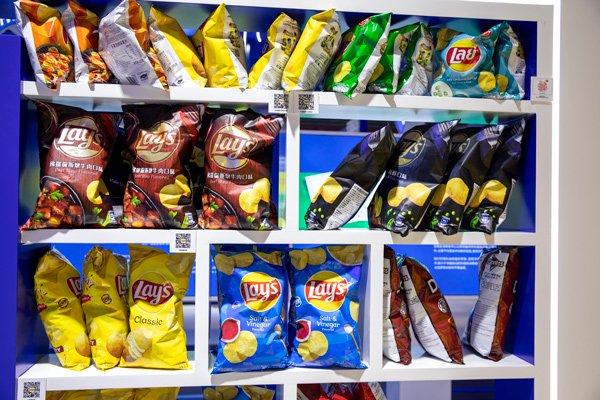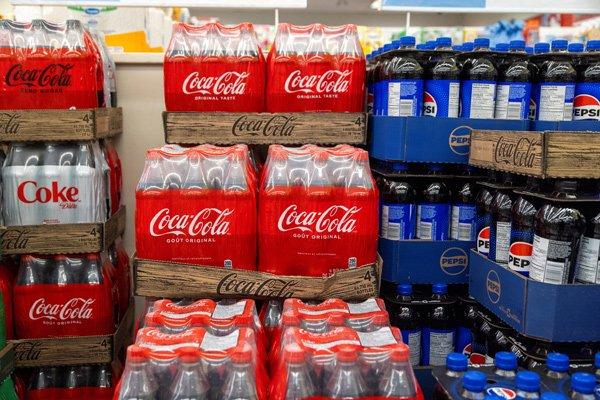

[Report by Ouanzhe Net, Zhang Jingjian] President of the United States Donald Trump was excited to announce the news that Coca-Cola would start producing its cola with real cane sugar. However, just as he was about to speak, he was “faced with a slap in the face” as Coca-Cola Company stated that it had not made any promises to change.
However, PepsiCo took up the baton and gave Trump some credibility.
According to Reuters, on the 17th, PepsiCo announced that if consumers have a demand, its Pepsi and other beverage products will use cane sugar. The company also plans to reform popular snack brands.
Pepsi executives said that the company plans to relaunch Lay’s and Tostitos brands later this year, focusing on promoting that their chips or corn chips do not contain artificial colors and flavors.
Ramon Laguarta, CEO of PepsiCo, mentioned in a call with investors that “We are working hard to strengthen the brand recognition of Lay’s ‘natural food’. Chips are considered the simplest and most natural snack—the ingredients are potatoes, oil, and a small amount of salt, with minimal components and no artificial additives.”
The company also stated that it would expand the use of avocado oil and olive oil in its brands, replacing the currently used soybean oil or canola oil.
In April this year, PepsiCo announced plans to switch all its product categories to natural pigments or offer consumers the option of “no synthetic pigments.” Its Cheetos snacks and Gatorade drinks currently rely on synthetic pigments for their bright colors.
Currently, PepsiCo’s “Simply” series has launched products without artificial pigments and flavors, including Lay’s and Doritos.
The report mentioned that this reform comes at a time when U.S. Health Secretary Robert F. Kennedy Jr. is advocating for Americans to consume “natural foods” and pressuring manufacturers to stop using pigments.
The 71-year-old Robert F. Kennedy Jr. has repeatedly declared his intention to “make America healthy again” (MAHA), believing that the United States needs to curb the prevalence of obesity by reducing the content of high sugar, high fat, and processed food additives in its national diet.
On the day before PepsiCo announced its reforms (the 16th), Trump posted on his own social media platform, Truth Social, stating that Coca-Cola had agreed to use real cane sugar in its production of soda in the United States.
However, according to a report by CNBC, when asked about Trump’s statement, Coca-Cola did not commit to any changes.
In a statement, the company said, “We thank President Trump for his enthusiasm for our iconic Coca-Cola brand. We will soon share more details about the innovations in our Coca-Cola product line.”
Trump is known for his love of cola. The sweetness of cane sugar and high fructose corn syrup differ slightly; the former was originally used to produce the sweetness of cola. However, due to tariffs imposed by the U.S. government on imported sugar in the 1980s, which led to an increase in the price of cane sugar, Coca-Cola switched to high fructose corn syrup.
Although cane sugar has a slight nutritional advantage over high fructose corn syrup, industry analysts pointed out that if other Coca-Cola products and beverages and confectionery in the U.S. market were adjusted in formula, significant changes would need to be made to the company’s supply chain (due to different suppliers for corn syrup and cane sugar), modifications to product labels would be required, and costs would rise.
The Corn Products Association (CRA) stated that if high fructose corn syrup were completely removed from the U.S. food and beverage supply chain, the price per bushel (1 bushel equals 35.238 liters) of corn could decrease by $0.34, resulting in a reduction of agricultural income by $5.1 billion.
“The economic shockwave triggered by this will lead to the loss of rural employment positions and have a severe economic impact on communities across the United States,” said CRA.
Analyst Heather Jones pointed out in a research report that producing 1 pound of high fructose corn syrup requires approximately 2.5 pounds of corn, so if the U.S. market significantly reduces the use of corn syrup, it would suppress corn demand and harm the interests of corn farmers. At the same time, due to the insufficient domestic sucrose production to meet consumer sweetness demands, the import of sucrose may increase.
U.S. government data shows that about 400 million bushels of corn are used each year in the United States for the production of corn syrup needed for beverages and other foods, accounting for about 2.5% of the total U.S. corn production.
The annual U.S. sucrose production is about 3.6 million tons (half of which comes from Florida, Trump’s hometown), while corn syrup production is about 7.3 million tons.
Analyst Michael McDougall stated that the ongoing trade war initiated by Trump will make it more difficult to fill this gap.
“Sucrose is likely to be imported from Brazil, the world’s largest sugar producer, but Trump has just imposed a 50% import tariff on Brazilian sugar.”
James McDonnell, a partner at CIL Management Consulting, mentioned that sucrose not only costs more but also that Coca-Cola’s bottling plants were originally designed to use high fructose corn syrup.
McDonnell said that adjusting the formula would require additional investment, and bottling plants are unlikely to be willing to bear this cost, and consumers would also be unhappy with the price hike, as “the rise in egg prices has already made them very angry.”